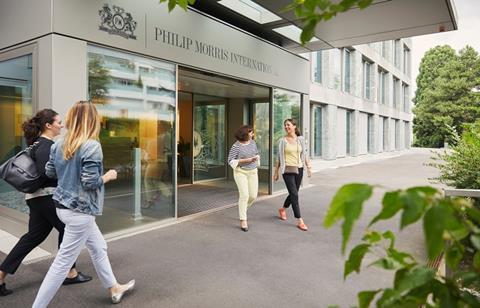
Multinational tobacco manufacturer Philip Morris International is in the process of going through a transformation, aiming to centre business around smoke-free tobacco alternatives. To successfully make this kind of a seismic shift, a talented and engaged workforce is vital.
Melissa Whiting, vice president of diversity and inclusion at Philip Morris International, says: "We've elevated inclusion and diversity to a business priority. In the last couple of years, as we've moved into the transformation of the [business], there's a need for the full talent pool from all over the world."
For the last 10 years, the organisation, which has a global workforce of 77,000, has made a concerted effort to address the diversity issues faced by both the tobacco and overall manufacturing industries, focusing on equal opportunities, diverse recruitment, unconscious bias training and, in March 2019, achieving a global equal salary certification.
Leadership and management training around awareness and bias has been part of PMI's approach for some time. However, with unconscious bias training in particular, there can be a danger that trainees and their organisations get complacent once they feel this box has been ticked, easily slipping back into negative behaviours, now underlined with the dangerous belief that their decisions will no longer be biased. This can, ultimately, create an even more exclusive environment for those faced by bias, making well-meaning efforts to include them appear superficial and ineffective.
Indeed, Whiting warns against using these methods as a catch-all solution, without reinforcing them with structures and policies that help stave off problematic behaviours and reward positive actions, such as embedding inclusion in the remit of 360-degree feedback for leadership, and putting in structured, objective-oriented talent pipelines for the workforce to weed out barriers to progression.
In recent years, the organisation's strategy has shifted away from simply making a commitment to diverse recruiting and equal treatment and pay, and instead to fully embedding inclusion within the organisation's culture.
"We had a big focus on awareness, building the business case, running unconscious bias training; we're way past that," she explains. "But how do you actually create an environment in which people can speak out, or be different from the majority?"
For Whiting, this means a multifaceted approach, including leadership buy-in, clear talent development objectives, and flexible-working structures to allow employees to shape work around their own lives and needs. In the future, Philip Morris International aims for this flexibility to go even further, breaking down the hierarchy and becoming more agile as the organisation itself progresses and evolves.
It is also important to foster open discussion, and allow employees to flag pain points and make suggestions. To this end, Philip Morris International conducts employee engagement surveys every six months, as well as more regular, focused pulse surveys with various pockets of staff that dig down into specific issues.
Ultimately, though, for an organisation the size and spread of PMI, ensuring that employees do not feel excluded is very much about empowering and educating individual managers. A top-down commitment from leadership can then be met with unbiased actions and open communication throughout an employee's day-to-day experience.
"How am I aware of the team that I have, to make sure all of the voices in my team are heard? It's part of a the behavioural framework we have in building leadership competencies," Whiting concludes. "How do I create trust, accountability and psychological safety in my team? It's breaking down those behaviours into actions that can be measured and [built on]."
Read more...
When does diversity and inclusion become exclusive?
Kim Field: Employers must go above and beyond with inclusive benefits for carers
Emily Hodgson: What can employers do to improve social mobility?











